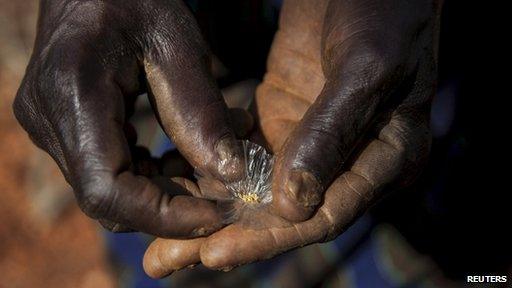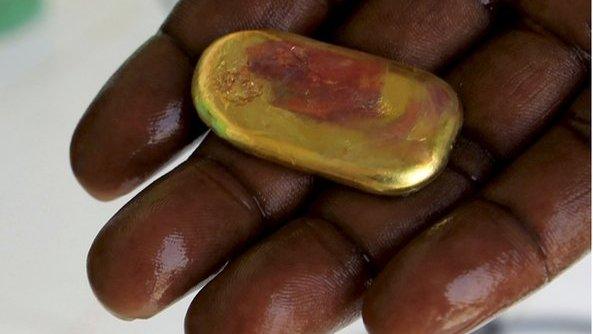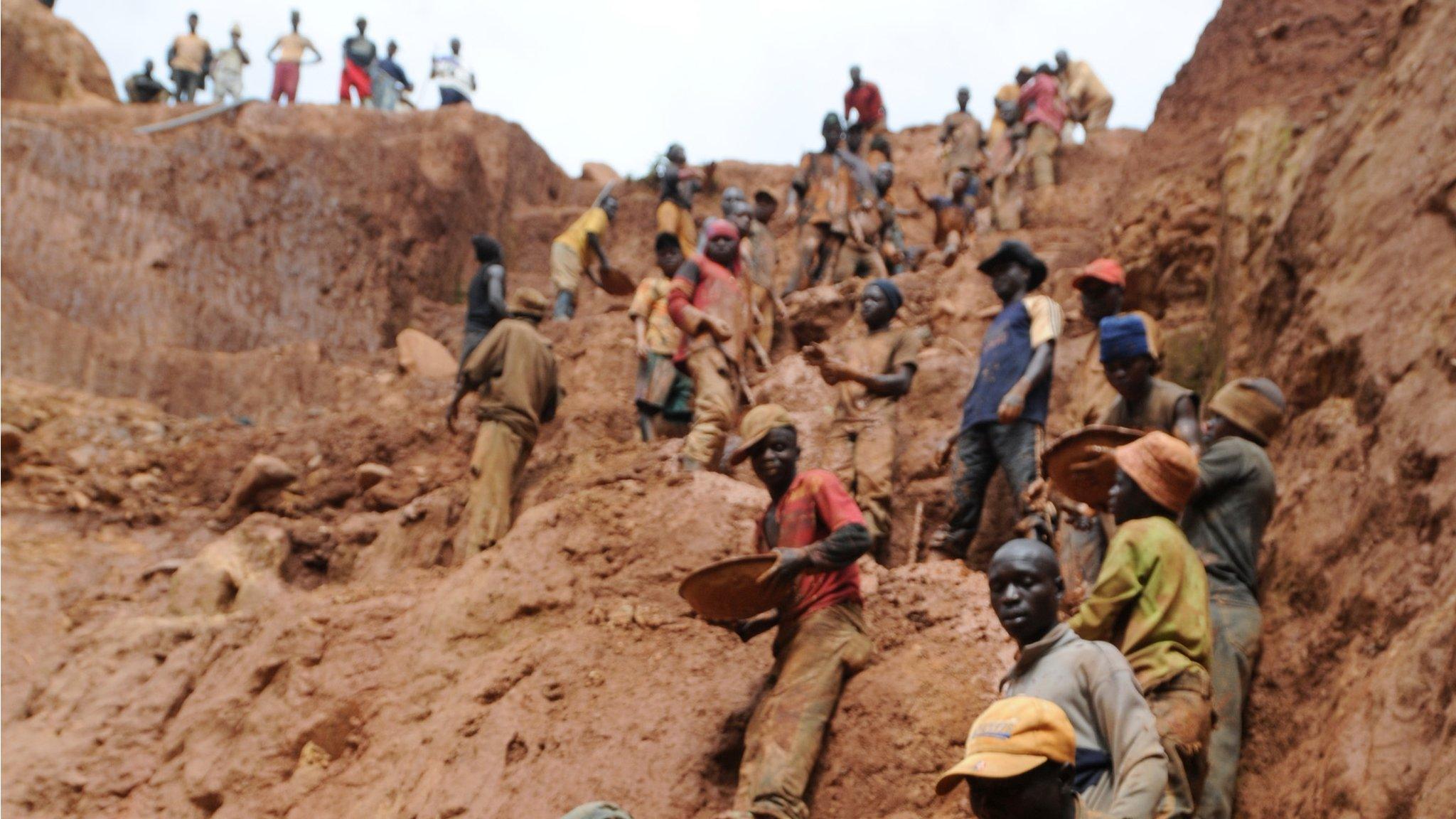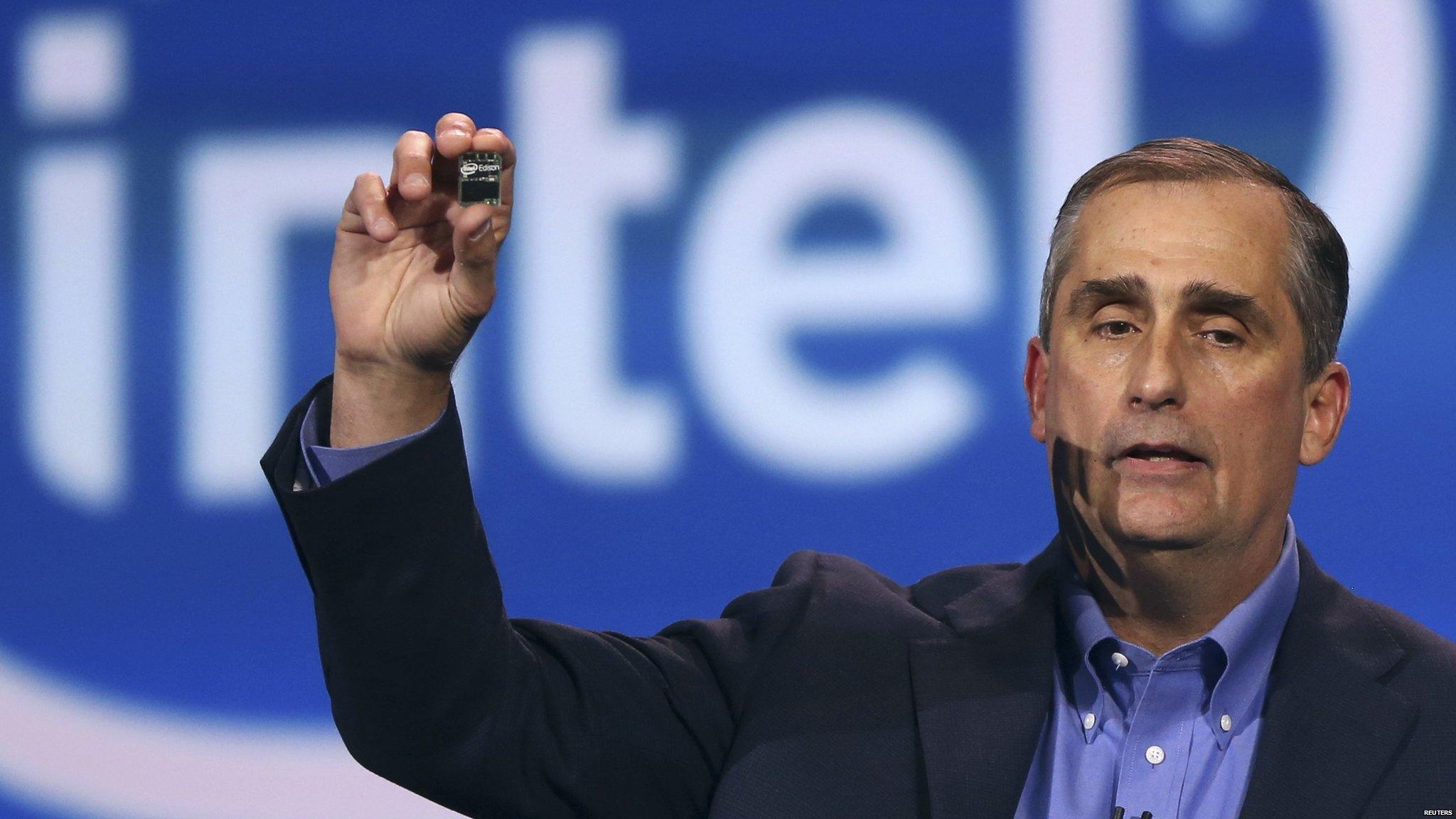Call to toughen European rules on 'conflict minerals'
- Published

The trade in gold, tin and other minerals fuels conflict in many areas, say rights groups
Europe's proposed laws on "conflict minerals" will fail to slow trade in the raw materials, claim rights groups.
A letter has been signed by more than 150 groups, external before a European Parliament vote on ways to limit their sale.
Many tech gadgets such as smartphones use conflict materials, so-called because they are mined in warlike conditions and traded by armed groups.
The letter says the law must cover more manufacturers and types of materials, and make firms police supply chains.
European politicians will vote on proposals drawn up by the European Commission on 19 May.
'Weak' proposals
Signed by Amnesty International. Friends of the Earth, Global Witness, Christian Aid, the Ethical Consumer Research Association and many others, the open letter says the trade in conflict minerals fuels wars and human rights abuses around the world.
It says the vote this week is a "landmark opportunity" for Europe to take action to stem the trade and curtail the conflict it engenders.
However, it says the current proposals are "weak" and do not go far enough.
The big problem with the scheme proposed by Brussels is that it applies on a voluntary basis to most companies, the groups argue. As a result, they say, few firms would be motivated to clean up their supply chains and report on their actions.
In addition, the letter says, the scheme only covers four minerals - tin, tantalum, tungsten and gold - in their raw form, and does nothing to address products entering Europe which have been made using conflict minerals. Many smartphones, tablets and other devices made in China are manufactured using these substances.
'Right incentives'
The letter says the scheme does not cover minerals and materials such as diamonds, jade and chromite, which are also known to be sources of conflict.
It urges MEPs to reject the plans in favour of a stronger scheme involving a mandatory system to ensure firms vet their supply chain.
"Those bearing the cost of our weak efforts to regulate this trade will be some of the poorest and most vulnerable citizens of the world," said the letter. "Now is the time for change."
Romanian MEP Iuliu Winkler - the European Parliament's lead negotiator on the plans - has previously said he "largely supported" the plans, adding that the priority should be ensuring that the right incentives are in place to encourage participation.
However, Green and left-wing MEPs have criticised the opt-in nature of the scheme.
- Published22 April 2015

- Published30 May 2014

- Published7 January 2014
